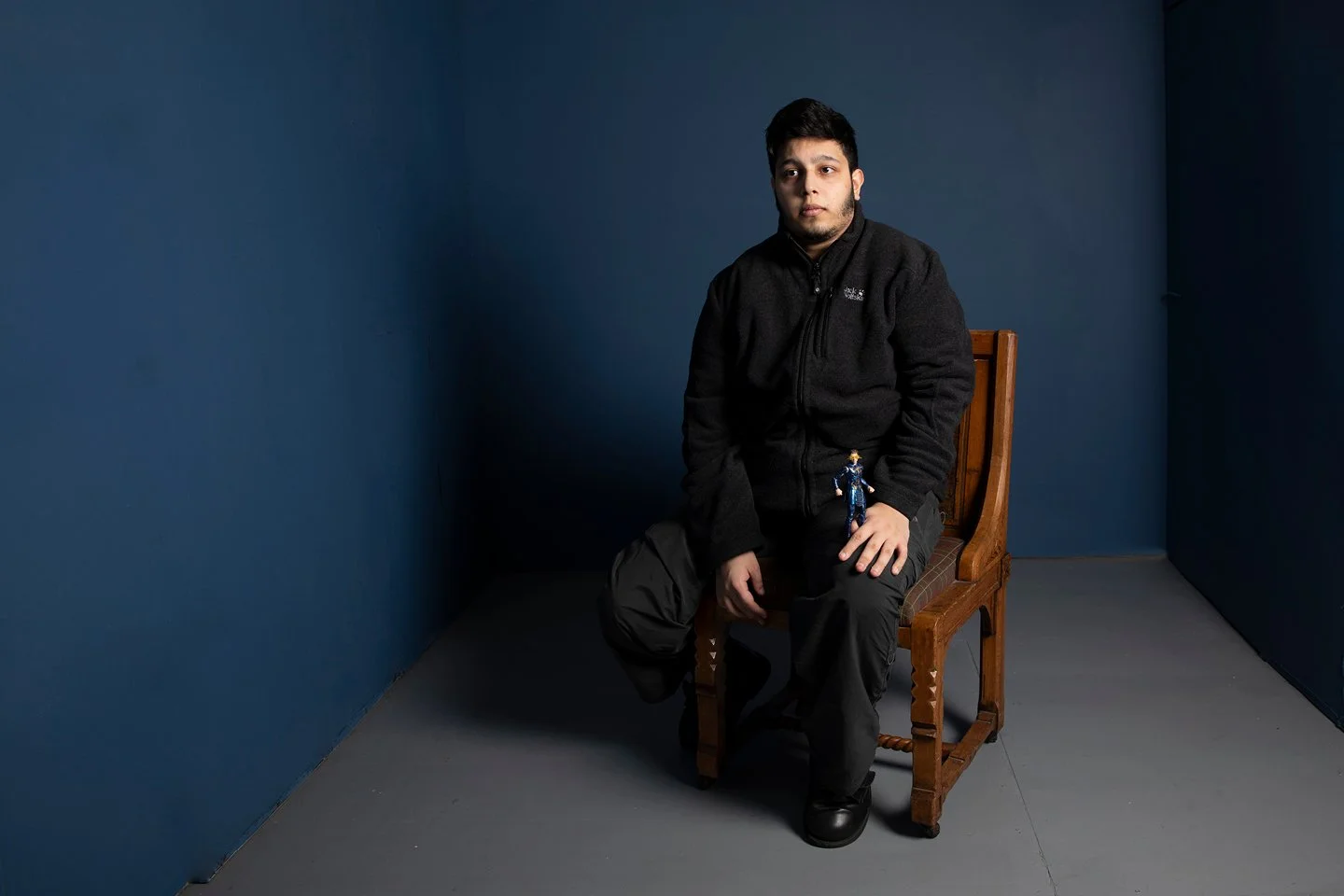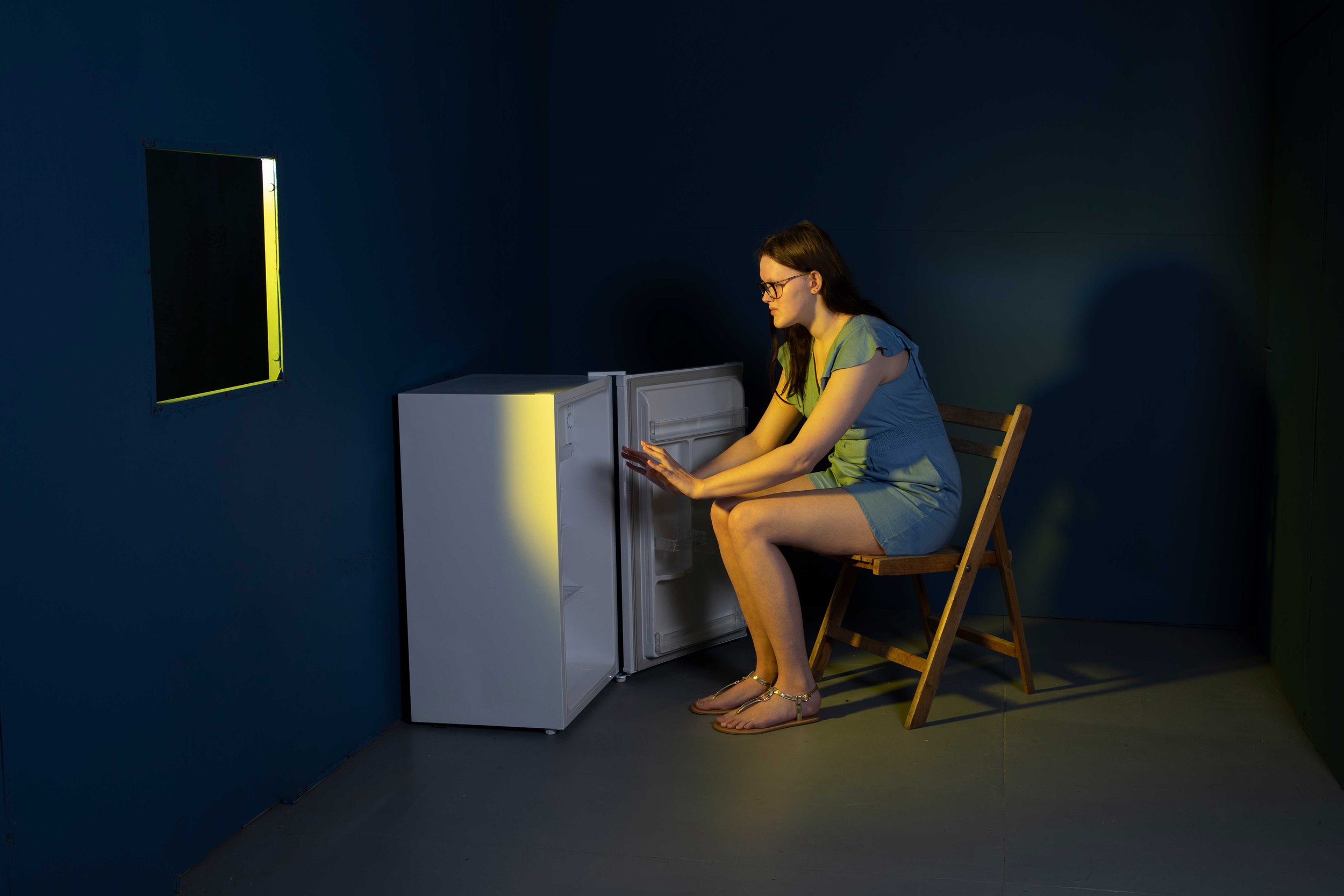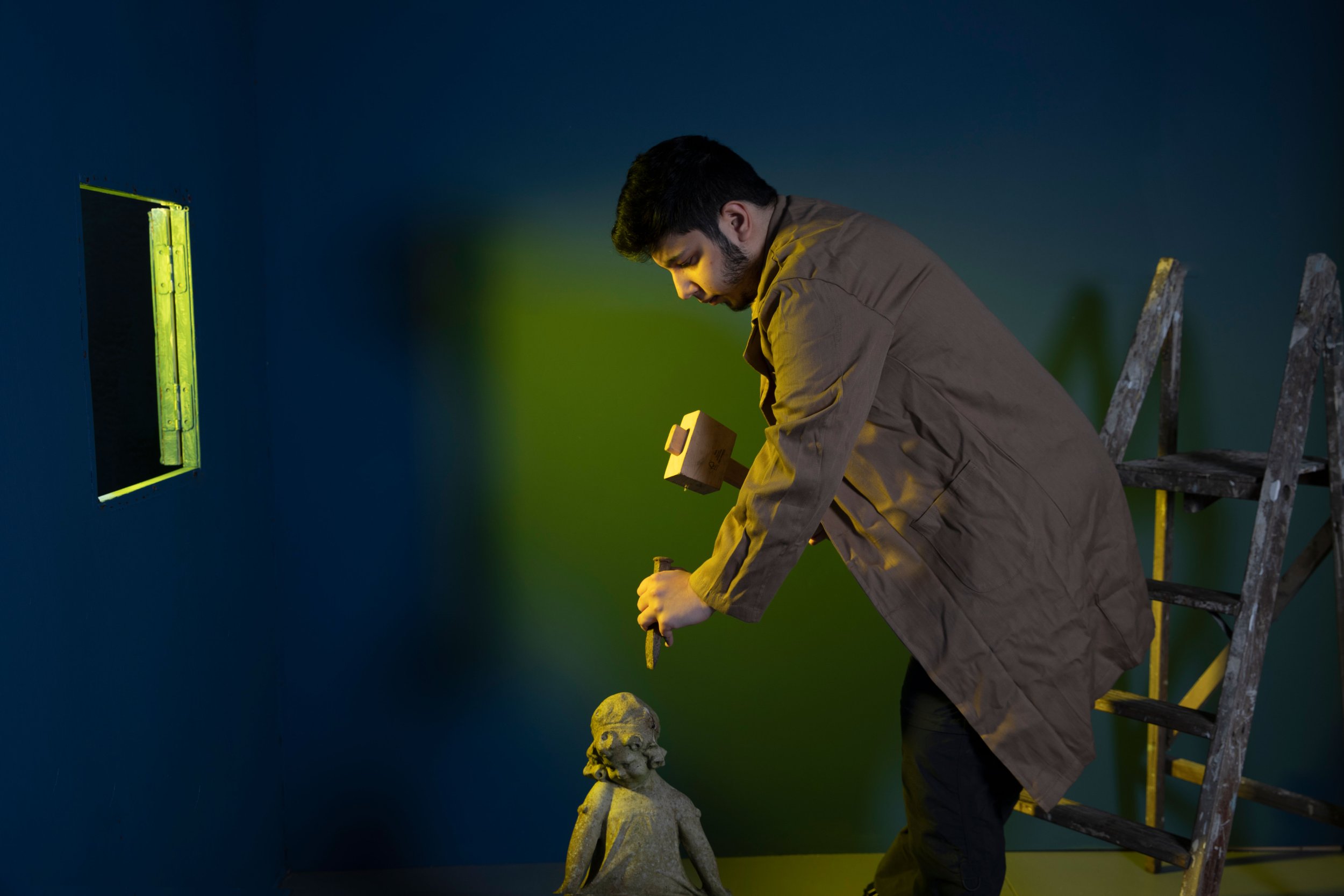20-year-old Avi has Fibrodysplasia Ossificans Progressiva (FOP), a very rare genetic connective tissue disorder that causes the abnormal growth of bone in areas of the body where the bone is not normally present. Avi’s condition is life-limiting, degenerative and complex. It is sometimes known as Stoneman Syndrome.
Avi lives with his mum Rashmita and his younger brother Kavil, who has recently moved away to University. Rashmita shares the often emotionally painful journey that she, as Avi’s parent and main caregiver, faced following his life-changing FOP diagnosis. A condition that is life-limiting, degenerative and complex. Her concerns for her son, who was only formally diagnosed at 4 years old, actually started when he was born. She noticed that he had inverted toes, which she now knows can be a classic symptom of F.O.P, but the link was not immediately made by the hospital team.
When he was born, I knew straight away that something was wrong with him but I thought that his toes had grown inwards and they just needed to be corrected. It was the same with his little fingers and thumbs which were also inverted in. I thought that he was not going to be able to grip things, and it worried me straightaway. I told the nurses who just said that they will have to make splints for his hands. He was in a hospital pretty much as soon as he was born and they made the splints for his hands at a couple of weeks old. They were absolutely tiny, the splints.
Photograph by Ceridwen Hughes for Days of Rare exhibition
Over the next few years, Avi underwent several operations, enduring corrective surgeries on both his hands and feet. These surgeries didn’t work and left him with both scarring and growth tissue. Once he was finally diagnosed with FOP his Mum became aware that surgery is not recommended for those living with the condition. Rashmita is clear that this is one of the key reasons why early diagnosis of rare conditions is so important. She had to watch her beloved son going through operations that were not only not going to help, but in fact, contributed to making things worse for him. She describes FOP as;
Photograph by Ceridwen Hughes for Days of Rare exhibition
A bone disease, it's basically where your muscles turn to bone, and you grow another skeleton inside the body, you are turning to stone, so to speak. So for example, if you hurt your arm and you bruise it in a fall, you lose movement in that part of the arm where you've damaged yourself. That muscle will then turn to bone.
And so for Avi the surgeries he underwent caused trauma to his fingers and toes rather than achieving the corrective outcomes the doctors had hoped for.
Just before he turned five a large lump on his back appeared and after a visit to the GP he was sent to the hospital for further investigation. After a barrage of tests over the next few days, the results came back. It was to be a day that Rashmita would remember forever. “When I got the diagnosis I was on my own,” a doctor and nurse had taken her into a room to speak to her about the diagnosis. She remembers that she’d said to the Consultant to just tell her what it is, that she could cope, and that she already knew it was something serious by the look on his face… “so then he told me that unfortunately, Avi had something called FOP. It means he will eventually be in a wheelchair, he will lose his physical abilities. He won't get any better. It hit me like a tonne of bricks. The consultant then said it's progressive and it's a very debilitating condition, there is no cure. I didn't know then that it was life-limiting.” She realised that her life was forever changed at that moment.
Fibrodysplasia Ossificans Progressiva (FOP),which is also sometimes referred to as Münchmeyer disease or Stoneman Syndrome/Stoneman’s Syndrome is a very rare, genetic connective tissue disorder. FOP is characterized by the abnormal development of bone in areas of the body where the bone is not normally present (heterotopic ossification). It is a severe, disabling disorder with no current cure or treatment. It is the only known medical condition where one organ system changes into another.
Telling us about the day Avi was diagnosed was incredibly hard for her, but she managed to continue and told us that as the consultant explained the diagnosis and FOP to her, she just kept thinking about how she would have to find the strength one day to explain his condition and his prognosis to him when he was old enough. She’d explained to him that he had ‘special bones’, and that he had to be very careful and to always tell her if he fell or bumped himself. When he was 15 she felt that he had a bit more knowledge and was mature enough to make decisions, she asked him if he wanted to know about his condition. At first, he said yes, so she asked him what he already knew. Replying that he knew a little, he had to be careful, it was an issue with his bones and that he knew he would not get better. Rashmita told him that he was right, that he wouldn’t ever get better and that they would cope, that she was always going to be there for him. It was at that point his mum says he simply shut down and told her that he didn’t want to know anymore, that it was too much for him.
His walking has gotten worse, his dexterity has worsened. He has had more mobile bone growth. He can’t stand up for long. He can’t sit down for long. He has a wheelchair, but he's fighting to not use it. It's almost like a reality for him of this is where I'm going to end up but I don't want to.
As time has gone on his mobility has deteriorated. Adjustments have been made to their home to help him and his mobility as much as possible. There are days when he can’t get up, where he can’t move a limb or any part of his body, like temporary paralysis. Even sneezing can cause him damage so he has to try and sneeze or cough gently. Sudden sneezes, the impact of the motion of sneezing on his chest, cause him pain. Day by day Avi and his Mum are learning to live with and adapt to new challenges.
Photograph by Ceridwen Hughes for Days of Rare exhibition
Avi is on the cusp of turning 21 and Rashmita is planning a party to celebrate. She is busy trying to do as many things as possible on his bucket list, for example, they enjoyed a fantastic trip to NYC a few years ago, which he absolutely loved. He had always wanted to go and kept telling his mum just how happy he was to be there. The bucket list also includes messages from footballers, maybe a signed shirt or a trip to a match. But top of the list would be the chance to meet one of his heroes – one of the Marvel superheroes! Marvel brings him a lot of joy and his love of the Marvel World has inspired his art and his interest in graphics. Moving forward is difficult for her, knowing the condition is slowly limiting him, but focusing on doing things for him and making him happy is a driving force. Rashmita is trying her hardest to get things in place to make as many dreams as possible come true for her boy.
Photograph by Ceridwen Hughes for Days of Rare exhibition
FOP FRIENDS
FOP Friends’ aim is to raise awareness to support families as well as further research into Fibrodysplasia Ossificans Progressiva (FOP) and related conditions by supporting current and future research projects.










